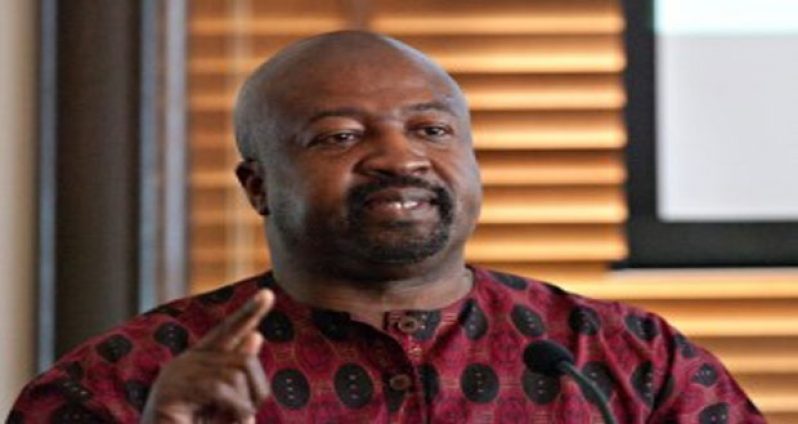A few days ago, President David Granger spoke out on the issue of ethnic witch-hunting or what the PPP and its talking heads have called ethnic cleansing. The President, as was expected, rubbished all that foolish talk by pointing to the partisan functions that were being carried out by people disguised as state functionaries. But even as I refer to it as foolish, the charges of ethnic cleansing are not accidental. They are meant to partly excite the ethnic insecurities of PPP supporters and partly invoke the Indian Guyanese narrative of suffering which gets louder when the government is led by the representatives of the opposite ethnic group. But they are meant to achieve another goal that is the subject of today’s column.
Make no mistake, navigating ethnicity is difficult. Governing an ethnically divided society is quite a challenge; the government is constantly under the ethnic microscope. It has to find ways to survive the persistent ethnic onslaught. This onslaught by the PPP is driven by something more than normal ethnic reflexes. It is driven by the need to bully the government into halting the inevitable unravelling of the political and economic architecture of privilege and dominance of the country’s political economy enjoyed by the PPP elite and their friends.
For 23 years, the PPP employed its own model of ethnic survival. It reached for an extreme form of ethno-political domination that in the end transformed important sections of the state and government into creatures of the ruling party. In the process, it neutralised portions of the African Guyanese leadership and masses through a combination of bribery and state force. The model worked for 23 years, but the price was very high. The State merged with political gangsters and was transformed into a criminal enterprise, or what Professor Clive Thomas labelled the “criminalised state.”
Political assassinations and extra-judicial killings of mostly African Guyanese men became normative and the leadership of the government and state was put in the hands of PPP members and supporters, most of whom were of one ethnic group. In the end the legitimate representatives of African Guyanese were shut out of the power structures of the country. A very powerful Indian Guyanese elite, which included a small number of African Guyanese and elites of other ethnic groups, emerged, and most of the state assets were transferred into private hands. As I argued in a previous column, one outcome was that African Guyanese resistance was subdued. The other related outcome was that the PPP was able to govern without much political challenge.
Were the PPP’s actions tantamount to ethnic cleansing? No. Ethnic cleansing involves the physical removal of an ethnic group and that did not occur. But African Guyanese were in effect disenfranchised–although they had the vote, it did not lead to political and socio-economic empowerment for the group. While the Indian Guyanese masses were locked out of privilege on account of their social class, in our ethnic environment, they were wittingly and unwittingly compensated by the fact that power was wielded by the elite of their group.
But the accumulation of power and wealth by the representatives of one ethno-political group was bound to have consequences if the PPP were to lose power. In 2011, the signals became clear that the end was near, but the PPP, blinded by the politics of domination, could not see it. By 2015 it was all over. The PPP tried everything to hold on to power because political power was critical to the protection of the privilege it had acquired for itself.
No multi-ethnic state could function properly with the ethno-political imbalance in wealth and in the leadership of the power centers. The logic of a change in government must lead in the direction of correcting that imbalance. One has to see the removal of PPP functionaries from some crucial state posts in this context. To expect the new government to govern with a state that is the creature of the PPP is wishful thinking. The Indian Guyanese working poor, most of whom are PPP supporters, have not been removed from their jobs. In fact the new government has bent over backwards to ensure that sugar workers remain employed. So the removal of the PPP boys and girls from some positions in the state is not about cleansing East Indians. It’s about restoring fairness and integrity to the centre of power.
(Dr. David Hinds, a political activist and commentator, is an Associate Professor of Political Science and Caribbean and African Diaspora Studies at Arizona State University. More of his writings and commentaries can be found on his YouTube Channel Hinds’ Sight: Dr. David Hinds’ Guyana-Caribbean Politics and on his website www.guyanacaribbeanpolitics.com. Send comments to dhinds6106@aol.com
Hinds'Sight: Putting the aggressive charges of 'Ethnic Cleansing' in Context
SHARE THIS ARTICLE :
Facebook
Twitter
WhatsApp




.png)









